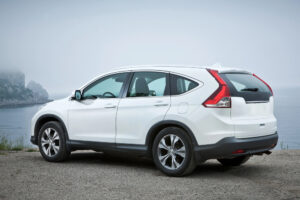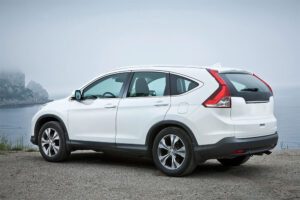Choosing to buy a used car instead of a new one can be a wise financial decision. Used cars and trucks cost less than new ones, and someone else has already taken most of the hit from depreciation. Insurance premiums can be less, buyers can find more options, and car payments are lower. If you’re on a budget, case closed, right?
Not exactly. Buying a used vehicle leads to other choices buyers must make: certified pre-owned vs. used. Both options have their pluses and minuses, with cost being the most significant difference. Certified pre-owned (CPO for short) certainly sounds promising, doesn’t it? But is the higher price worth what you actually get? A traditional used car may not have a warranty, and there’s often no assurance of it being well maintained. So, does the lower cost of a traditional used car offset skipping those certified perks?
We need to understand what CPO means and how it differs from non-certified to get our answers. We also need to understand the used car vs. certified pre-owned differences and how they can impact buyers financially and with their long-term satisfaction.
What Makes a Car Certified Pre-Owned?
What’s the difference between certified pre-owned and used? A traditional used car is exactly what it sounds like—not new! While most drivers are familiar with the term and understand the implications. It costs less, it will require upkeep, and buying from a trusted dealership is best. However, many buyers aren’t as familiar with certified pre-owned vehicles. Cost is one of the most critical differences—the average price of a certified used car is around $31,000, and a comparable non-certified used vehicle is about $26,500.
Other than a higher price tag compared to the non-certified version of the same car, a certified used car is different in a few ways. A CPO car or truck is always sold by a franchised dealership carrying the same brand. These certified used cars are typically well-maintained, free of accidents, and only a few years old. Certified used cars often come with an OEM warranty, have maintenance records, and go through a brand-specific inspection process.
While the differences between certified and used cars are worth consideration, It’s important to remember that CPO vehicles are still used. Yes, each option has its perks, but to get to the bottom line, we want to weigh the upside and downside of both.
Pros and Cons of Used Vehicles
Often, used cars and trucks have a distinct advantage over new and certified vehicles because of the depreciation drop. New cars typically lose 20% or more of their original value in the first year—and 15% each year after. When you buy a non-certified used car, much of the depreciation from the first few years is already paid. In the used car vs. certified pre-owned debate, the depreciation drop is a significant factor, but it’s important to weigh the other pros and cons.
Advantages of Buying a Used Car
- Lower cost
- Faster payoff
- Potential insurance savings
- Wide selection
- Can come with a warranty
Disadvantages of Buying a Used Car
- Potentially fewer personalized options
- Sometimes, higher mileage than a certified car
- Increased risk when buying from individuals
There are many reasons a used car is worth a look for most drivers. If a buyer selects a quality used vehicle with top safety ratings from a reputable dealership, chances are good, they’ll be happy.
Pluses and Minuses of Certified Pre-Owned Vehicles
What are certified pre-owned cars’ greatest appeal? It’s a manufacturer-backed warranty. Cars are more expensive than ever, so buyers rightfully want as little risk as possible. Is that low-risk worth the extra money? Maybe. It’s important to note that certified pre-owned programs and the inspection process vary greatly. There’s also the possibility of encountering certified used cars “certified” by a third party or even the dealership. Risk aside, there are other pros and cons to consider.
Advantages of Buying a Certified Pre-Owned Car
- Typically low-mileage
- Include a limited warranty
- Less wear and tear
- Sometimes, more bells and whistles
Disadvantages of Buying a Certified Used Car
- Higher price tag
- Warranty coverage varies
- Higher insurance costs
- No universal standards for certification
- Certifications may be non-transferable
If you shop for a certified pre-owned vs. used car, do your homework and understand what to expect. At a minimum, you should require the dealership to provide documentation for both the certification process and the limited warranty.
Making the Decision: Used Car vs. Certified Pre-Owned
Buying used instead of new is an easy decision for most drivers. However, the decision to go with certified vs. non-certified means doing the math and weighing the options to make an informed decision. Buyers should consider the price of the car or truck, the warranty cost, the vehicle’s maintenance history, and other factors. Car Time Supercenter is a local family-owned dealership with a large inventory of quality used cars, flexible financing, and hometown service.

There are good reasons people will buy their next used car in Tucson from Car Time Supercenter. But I think we are one of the most trusted used car dealerships mainly because we treat everyone like family. My family has provided quality, dependable local used cars to Tucson customers since 1984, and I’m proud to be a part of our continued success.
Like many family-owned businesses, I grew up going to work with my dad. Falling in love with cars was natural because of my father’s passion, and eventually, I came to love the car business just like him. I officially joined the Car Time Supercenter team in 2012, starting in the finance department. Over the past decade, I’ve learned the used car business and how to treat customers from my family and industry resources.
Today, I oversee marketing, social media, inventory, and reconditioning, so I play an essential role in delivering local Tucson used car buyers the best experience possible. I also help our family business keep up with the times while providing old-fashioned customer service. From attending NADA classes to becoming Allstate certified for back-end products, I continue to learn and add skills to serve our customers better.




